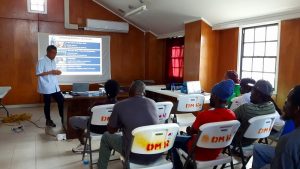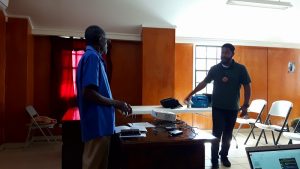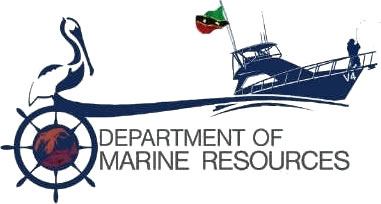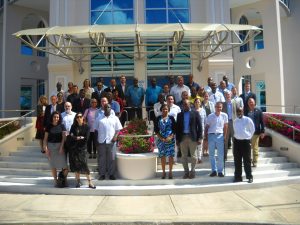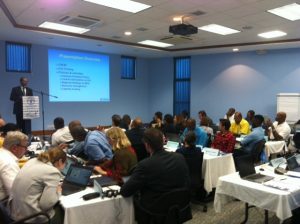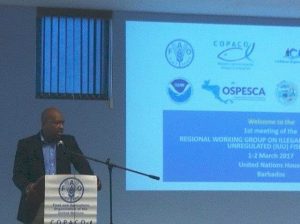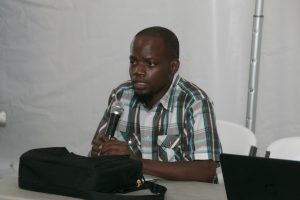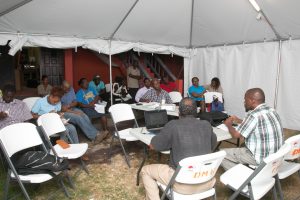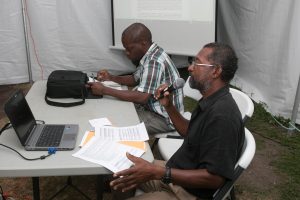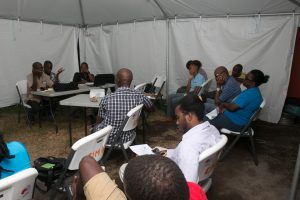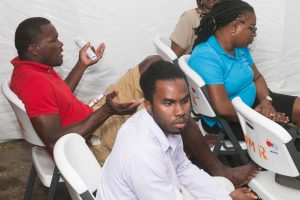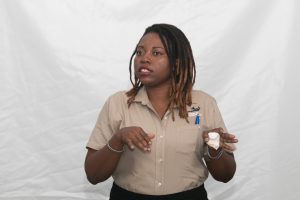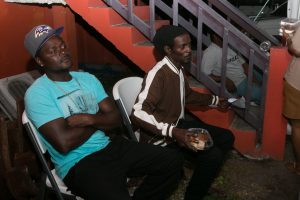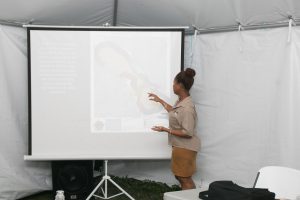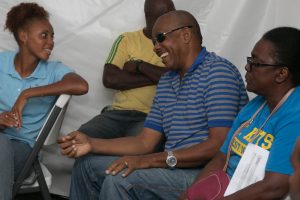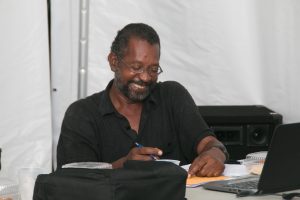6th National Joint Coordinating Committee Meeting
On 13th February 2017 representatives of the Japanese Government and the Department of Marine Resources held its sixth and final National Joint Coordinating Committee meeting at the Old Road Fisheries Complex as they concluded the 5 year Caribbean Fisheries Co-management Project here in the Federation of St. Kitts and Nevis. Present were Mitsuhiro Ishida and Minoru Tamura from the Japan International Cooperation Agency. Wilmot Alleyne, Kharim Saddler, Hazelmay Richards and Ashadi Duncan represented the Department of Marine Resources. Fish Aggregating Devices (FADs) Fishers included; Lester Richards, Franklyn Challenger, Winston Hobson, Darwin Francis, Michael Samuel, Roger Ottley, Richard Dorsette and Earl Freeman.
Mr Alleyne gave the welcome remarks with a brief overview of the FAD Fishery over the past several years and the formation of the Caribbean Regional Fisheries Mechanism. He stated “one of the goals of the CRFM is to ensure sustainability. After endless discussions 3 recommendations were made, one was to have a co-management approach to fisheries which is where we are today which was implemented in May 2013.” There were 6 OECS countries involved in the Caribbean Fisheries Co-management project namely, St. Lucia, St. Vincent & the Grenadines, Grenada, St. Kitts and Nevis, Antigua and Barbuda and Dominica that explored FAD Fishery.
Mr. Saddler introduced Mr. Kareem Wilkin – Department of Fisheries Nevis, who gave an overview of the activities done within the project period and also the equipment and materials received and distributed among the local FAD fishers such as ropes, swivels, buoys, tents and microphones.
Mr. Tamura gave a brief presentation on Guideline for Fishery Co-management “Facilitating Co-Managed Fisheries in the Caribbean: Good Practices and Guidance from the CARIFICO Experience.” He explained the project’s purpose and target levels which were Country level (developing co-management approaches through pilot project), OECS level (Conducting technical exchange and accumulating lessons learned from pilot project) and Regional level (sharing co-management approaches). Guidelines were done by analyzing information from the countries, workshops and training sessions.
Mr. Saddler and members of the St. Kitts Nevis FAD Fisher Association (SKN FFA) had an open discussion about the way forward in FAD fishery. We have seen that there are several levels of co-management we can reevaluate the collaboration between the DMR and fishers. “Now we have to elaborate on what responsibilities the SKN FFA is willing to accept, however it can change as time goes by but this will be our first priority”, said Mr. Saddler.
“The goal of co-management includes the desire to promote fairness, the sustainability of fishery resources and shared governance” said Mr. Tamura. The overall goal is to balance Economic Development and Resource Management. In the fisheries co-management we set 8 activities which were :
- Fisher Consultations (ongoing)
- Organization (established)
- Trainings (ongoing)
- User Rules (established)
- Catch Data (collected)
- User Fee (delayed)
- Marketing (ongoing)
- Maintenance (ongoing)
- Promote attributes of activities listed above (ongoing)
- Create a Sub-Regional Network (Fishermen exchange in Grenada)
- Technical Exchange (Workshop in St. Lucia 2017)
